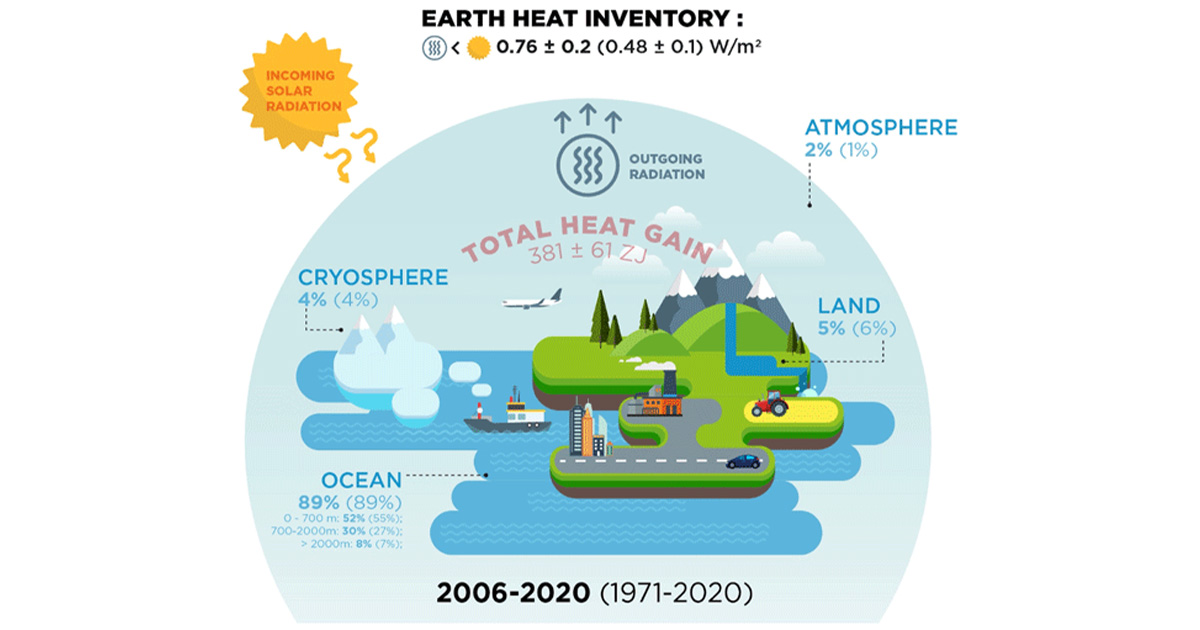A new study shows that 89% of the excess heat built up in the Earth system from 1960-2020 has been absorbed by the Ocean. An international team of 70 researchers from 15 countries led by Mercator Ocean International’s Karina von Schuckmann revealed their results today in a paper published in the journal Earth System Science Data.
Planetary warming over multiple decades driven by human influences such as CO2 emissions has led to an imbalance in the Earth’s Energy budget, where the Earth is accumulating heat in the climate system warming the Ocean, land, atmosphere and melting the ice. Over the last 15 years, this accumulated heat has risen by nearly 50% compared to the amount accumulated over the last 50 years. The vast majority of the heat is accumulated in the Ocean, provoking sealevel rise, changes in circulation patterns and weather patterns, and adverse effects on marine ecosystems. The study shows that the remainder of the heat goes into the land (6%), ice (4%), and the atmosphere (1%). This international group of scientists calls the Earth’s Energy Imbalance one of the most fundamental global climate indicators that can be used by scientists, the public, and policy makers to measure the impact of our collective efforts to bring climate change under control. They urge for this indicator to be included in the Paris Agreement’s Global Stocktake exercise to measure global progress against climate targets.
To read the paper, please click on the following link: Heat stored in the Earth system 1960–2020: where does the energy go?



